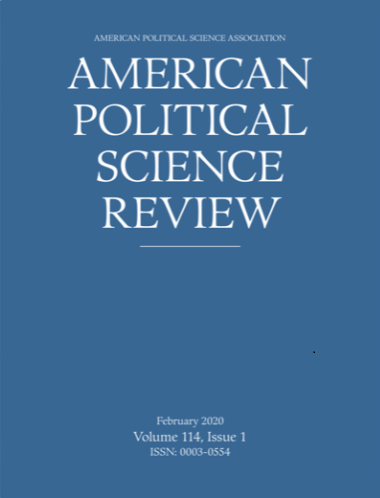Identifying the Rich: Registration, Taxation, and Access to the State in Tanzania
IF 5.9
1区 社会学
Q1 POLITICAL SCIENCE
引用次数: 4
Abstract
How do states build their informational capacity? This article argues that distributive politics conditions how the state’s capacity develops. I study civil registration, where citizens comply with the state’s informational demands in exchange for documentary proof of identity, which may simultaneously facilitate access to public resources and exposure to taxation. Though the rich are particularly threatened by taxation, the narrow benefits of registration induce their compliance over that of the poor. I leverage a set of reforms in early postindependence Tanzania which provide quasi-random variation in citizens’ registration status and show that registration promotes access to narrow-based resources, rather than broad-based ones, while increasing tax payment. In turn, citizens’ decisions to comply reflect the economically stratified local incidence of these net benefits. The results suggest how nominally universal state-building schemes can have regressive effects on the state’s coverage.识别富人:坦桑尼亚的注册、税务和进入国家的途径
各州如何建设其信息能力?本文认为,分配政治决定了国家能力的发展。我学习民事登记,公民遵守国家的信息要求,以换取身份证明文件,这可能同时有助于获得公共资源和纳税。尽管富人尤其受到税收的威胁,但登记的狭隘好处使他们比穷人更顺从。我利用了独立后早期坦桑尼亚的一系列改革,这些改革为公民的登记身份提供了准随机的变化,并表明登记促进了获得基础狭窄的资源,而不是基础广泛的资源,同时增加了纳税额。反过来,公民遵守的决定反映了这些净福利在当地的经济分层发生率。研究结果表明,名义上普遍的国家建设计划会对国家的覆盖率产生倒退影响。
本文章由计算机程序翻译,如有差异,请以英文原文为准。
求助全文
约1分钟内获得全文
求助全文
来源期刊

American Political Science Review
POLITICAL SCIENCE-
CiteScore
9.80
自引率
5.90%
发文量
119
期刊介绍:
American Political Science Review is political science''s premier scholarly research journal, providing peer-reviewed articles and review essays from subfields throughout the discipline. Areas covered include political theory, American politics, public policy, public administration, comparative politics, and international relations. APSR has published continuously since 1906. American Political Science Review is sold ONLY as part of a joint subscription with Perspectives on Politics and PS: Political Science & Politics.
 求助内容:
求助内容: 应助结果提醒方式:
应助结果提醒方式:


